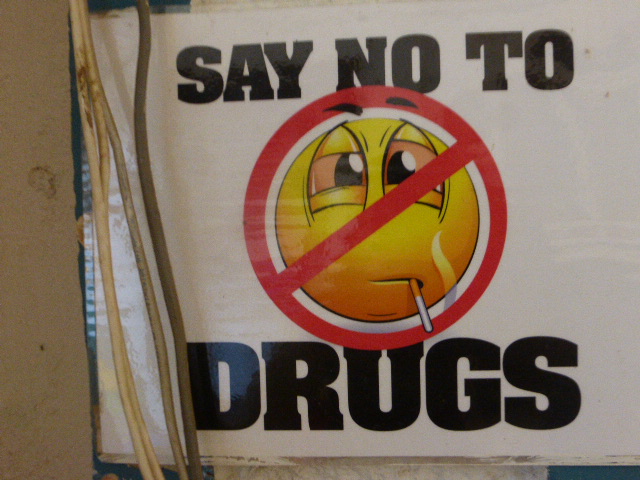Trekking in the lush mountains ‘somewhere’ in Colombia and looking over the steep hillsides which were jam-packed with stubby glossy-green coffee bushes I asked my local friend about the money that the farmers here would earn from their beans. He told me that the farmers here could not receive a good price at all for their beans on the market but that they were financially very well off, thank you very much!
After meeting Jorge the coffee farmer earlier in my travels (read that article here) I wondered how the farmers in this area earned their money. They didn’t even appear to have the usual secondary crop of plantains or bananas growing alongside the coffee, yet they had extravagant homes and cars in the mountains.
My friend expanded upon his story but he asked me not to identify where we were walking. It transpired that the majority of the mountains that we could see, and many more beyond, were owned by just one wealthy man. That man had earned his wealth through the little white powder that Colombia is famous for, but now, with the authorities becoming more vigilant he had to somehow justify that wealth. So he bought a mountain; the land and the farmers.
The farmers continue to farm their coffee (they have no interest in planting additional cash crops), and in exchange, this man pays the farmers top prices for their beans, which for now, satisfies the authorities. It is money laundering.
Whether the wealthy landowner still trades in his sideline of ‘white coffee’ or if he has retired from that more lucrative career path I am not sure, but the local farmers don’t appear to care whilst they are receiving the money.
And there is a market for the ‘white coffee’. Whether among the local population or for the tourists, across South America drugs of any description are cheap and easily available.
I certainly would never want to be caught with any illegal substances on me as sentences can be exceedingly harsh but there is corruption among some of the police in some of the countries and that actually makes things easier. If they catch you with something, yes the majority of officers will follow the law but a huge proportion will ensure that they personally benefit.
I met one guy who was stopped by the police in Cartagena and searched. They found something on him and luckily they gave him a telling off, confiscated it (no doubt they would use it themselves later or sell it on) and told him to be on his way. Chancing his arm, my friend cheekily asked if they had anything for sale – to which they replied that they knew that he didn’t have enough cash on him, but left him in no doubt that if he did, he could have been in a position to buy it back from them!
Men stand on every street corner in South America selling things – from chewing gum and tobacco to shoe laces and tissues and they all whisper as you walk past, asking if you want to buy something special. My advice here is DON’T. Many will not sell you the real deal, others are in cohoots with the police and will follow you and report you in exchange for a pay-off. But it is all out there and it is cheap.
In Colombia you can buy little 1 gram bags of the white powder for between $4 and $7 and weed will cost you just $1.50 per gram. The temptation is there, but do remember that the recent history and the devastation of entire families in Colombia is all caught up in the recent wars between the drug cartels and by buying into the trade you may be perpetuating the problems.
I was very upset when I met a Colombian policeman in Ecuador who was on the run and in hiding with his wife and two children following the assassination of some of his family after his role in the anti-narcotics force was uncovered. I doubt that my ‘practical research’ into the trade contributed much to the overall situation, and I have to confess to certainly enjoying the many and varied fruits of the country while there, but who knows.
The country is still raw from the black period in history and there are still restrictions which hang over the people. It was until relatively recently illegal for 2 men to ride pillion on bikes as so many were gunmen and while that rule has been relaxed there are still prohibitions. On election days, people are not permitted to go out with a pillion rider (previously there would have been drive-by shootings from motor bikes and also in some areas of Cartagena on pay day, pillions are barred due to the high prevalence of drive-by bag snatches.
The worlds of the ‘white coffee farmer’ and Jorge who is striving to change the system for all of the coffee farmers in his area are poles apart, but it is people like Jorge and Juan – ordinary people at grass roots level who are the ones who will eventually make a difference and change peoples’ perception of Colombia.
And people like you – tourists and visitors who go with an open mind and take much needed revenue into the country.


